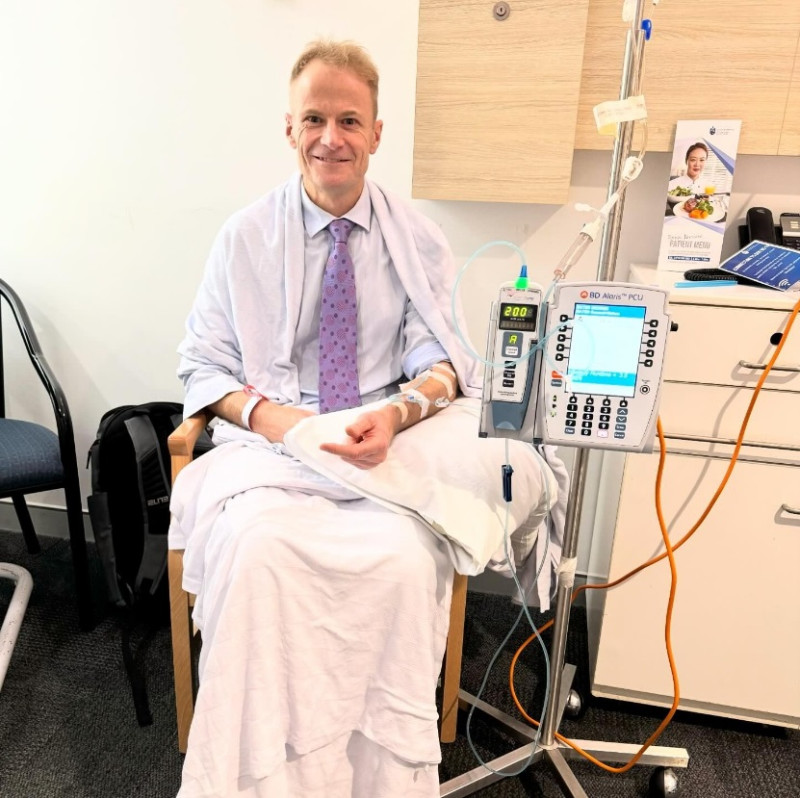Richard Scolier said he “couldn’t be happier” after the results of a recent MRI showed there was still no sign of his glioblastoma returning.
An Australian doctor who applied his own pioneering melanoma research to himself to fight the incurable brain cancer he was diagnosed with almost a year ago, remains cancer free so far.
The University of Sydney professor Richard Scolyer said he “couldn’t be happier” after the results of a recent MRI showed there was still no sign of his glioblastoma returning.
In his post on X, Professor Scolier, who together with the professor of the University of Sydney, Georgina Long, were declared Australians of the Yearsaid: “Couldn’t be happier!!!!!”
“Thank you to the wonderful team for looking after me so well, especially my wife Katie and wonderful family!” said Scolier, who decided to make himself a guinea pig, and so far he is justified.
The professor, whose melanoma treatment is credited with saving thousands of lives, was diagnosed last June with the tumor after seizure suffered in Poland.
He became the first brain cancer patient in the world to do so combination immunotherapy before surgery, as he used the foundation of his life-changing melanoma work to save his own.
The Australian professor is now hopeful the tumor will not return as, he says, the median time for the tumor to reappear fourth degree he had in the brain it’s six months.
“Undertaking an experimental treatment at the risk of shortening his lifehas advanced the understanding of brain cancer to the benefit of future patients,” the University of Sydney said in announcing the Australian of the Year award for Professors Scolier and Long.
I had brain #MRI scan last Thursday looking for recurrent #glioblastoma (&/or treatment complications). I found out yesterday that there is still no sign of recurrence. I couldn’t be happier!!!!!
Thank you to the fabulous team looking after me so well especially my wife Katie &… pic.twitter.com/WdqZKLDvge
— Professor Richard Scolyer AO (@ProfRScolyerMIA) May 13, 2024
The professors, who are also co-medical directors of the Melanoma Institute of Australia, made the disease curable thanks to their immunotherapy approach, which activates the patient’s own immune system.
Speaking to Sky News in February, Professor Scolier explained that “the risk of serious side effects with these types of drugs is quite highbut so far I couldn’t be happier and I hope it stays that way for a while.”
Professor Long added: “We have shown that … you can activate the immune system and do it very well, and this is now a fundamental first step to change the field and how drugs are being investigated in brain cancer’.
Source :Skai
I have worked in the news industry for over 10 years. I have a vast amount of experience in covering health news. I am also an author at News Bulletin 247. I am highly experienced and knowledgeable in this field. I am a hard worker and always deliver quality work. I am a reliable source of information and always provide accurate information.











